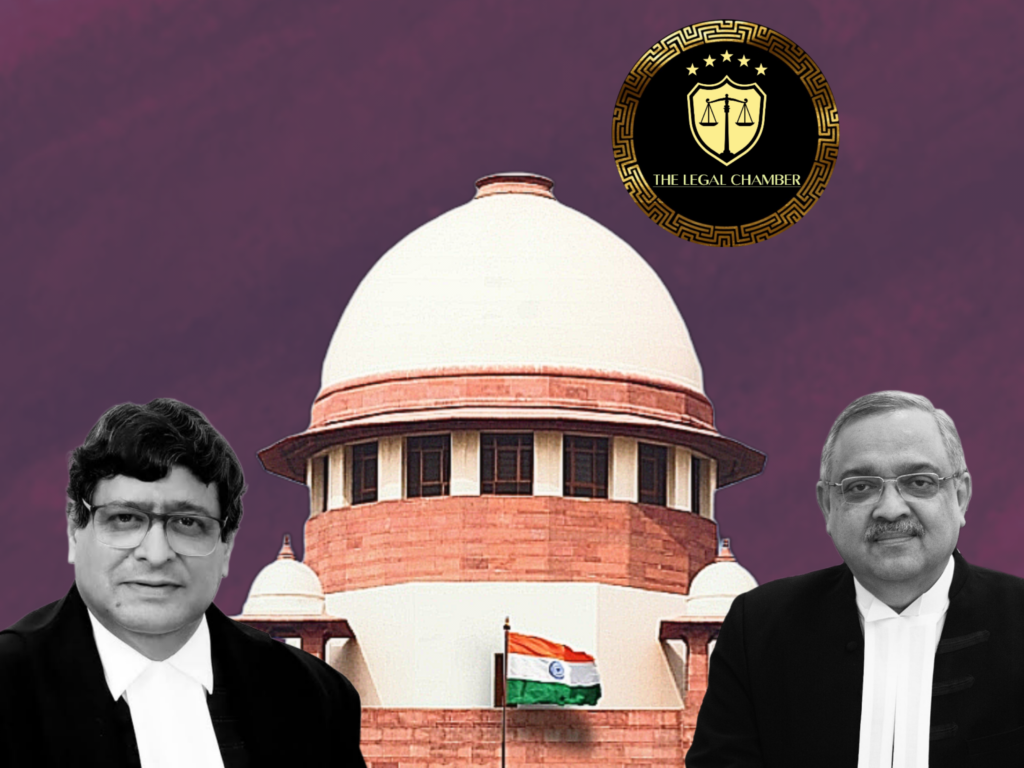
The Supreme Court held that the appellant, a Police Constable, was unjustly denied promotion consideration due to a previously set-aside punishment. The Court emphasized the right to be considered for promotion unless disqualified, ruling that the appellant must be evaluated for promotion from 2019 with consequential benefits, as the disqualification was based on an invalidated penalty.
Facts Of The Case:
The appellant, P. Sakthi, was a Police Constable in Tamil Nadu who joined service on 01.03.2002. In 2019, he became eligible for promotion to the post of Sub Inspector under the 20% departmental quota. However, his application was rejected by the Superintendent of Police on the grounds of a past disciplinary action—a punishment of postponement of increment for one year without cumulative effect, imposed on 09.05.2005. This punishment stemmed from an alleged altercation with a colleague during duty, which also led to a criminal case. Although the appellant was acquitted in the criminal case, the departmental penalty initially remained.
However, this penalty was later set aside by the government on 27.11.2009, as evidenced by Annexure P/4. Despite this, the authorities in 2019 disregarded the quashing of the penalty and disqualified him from promotion consideration. Aggrieved, the appellant approached the Supreme Court, arguing that the denial was unjust since the disqualifying punishment had been invalidated. The Court agreed, holding that the appellant had a right to be considered for promotion unless lawfully disqualified, which was not the case here. It directed that he be evaluated for promotion retrospectively from 2019, with all consequential benefits, as the denial was based on an erroneous and extinguished disciplinary record.
Procedural History:
The procedural history of the case began when the appellant, P. Sakthi, was denied promotion to the post of Sub Inspector in 2019 due to a past disciplinary penalty, despite its subsequent annulment in 2009. Challenging this decision, the appellant filed a writ petition before the High Court, though the outcome of this petition is not detailed in the judgment. Dissatisfied with the High Court’s decision or the lack of relief, the appellant approached the Supreme Court by filing a Special Leave Petition (SLP), which was registered as SLP (C) No. 30700 of 2024. The Supreme Court granted leave and converted the SLP into a civil appeal. After hearing the matter, the Court ruled in favor of the appellant, holding that the denial of promotion consideration was unjust since the disqualifying punishment had been set aside. The Court allowed the appeal, directing the authorities to reconsider the appellant for promotion from 2019 with consequential benefits, and disposed of any pending applications. The judgment was delivered by a bench comprising Justices Sudhanshu Dhulia and K. Vinod Chandran on May 02, 2025.
Court Observation:
The Supreme Court observed that the appellant had a legitimate right to be considered for promotion, as the disciplinary penalty that initially disqualified him had been set aside in 2009. The Court noted that the authorities erred in relying on an extinguished punishment to deny him promotion consideration in 2019. Emphasizing the principle that an employee has no absolute right to promotion but an undeniable right to fair consideration, the Court held that the appellant’s disqualification was unjust and legally unsustainable. It further clarified that since the punishment was annulled, it could not be used to impede his career progression. The Court also directed that the appellant’s promotion, if found eligible, should be granted retrospectively from 2019 with consequential benefits, as the denial was not due to any fault on his part but an erroneous administrative decision. The judgment underscored the importance of ensuring that disciplinary actions, once invalidated, do not continue to adversely affect an employee’s service rights.
Final Decision & Judgement:
The Supreme Court allowed the appeal, ruling in favor of the appellant, P. Sakthi, and directed the respondents to consider him for promotion to the post of Sub Inspector of Police from the year 2019, when he was originally eligible. The Court held that the denial of promotion consideration based on a disciplinary penalty that had been set aside in 2009 was unjust and legally impermissible. It emphasized that while there is no inherent right to promotion, an employee possesses an unequivocal right to fair consideration unless lawfully disqualified—a right that was violated in this case. The Court further ordered that if the appellant is found eligible upon reconsideration, he shall be granted promotion with all consequential benefits, including seniority and monetary arrears, from the date his peers were promoted. The judgment made it clear that invalidated penalties cannot form the basis for career impediments. All pending applications, if any, were disposed of in terms of the judgment, which was pronounced by the bench comprising Justices Sudhanshu Dhulia and K. Vinod Chandran on May 2, 2025.
Case Details:
Case Title: P. Sakthi vs. The Government of Tamil Nadu & Ors. Citation: 2025 INSC 620 (Non-Reportable) Civil Appeal No.: Special Leave Petition (C) No. 30700 of 2024) Date of Judgment: May 2, 2025 Judges/Justice Name: Justice Sudhanshu Dhulia & Justice K. Vinod Chandran
Download The Judgement Here